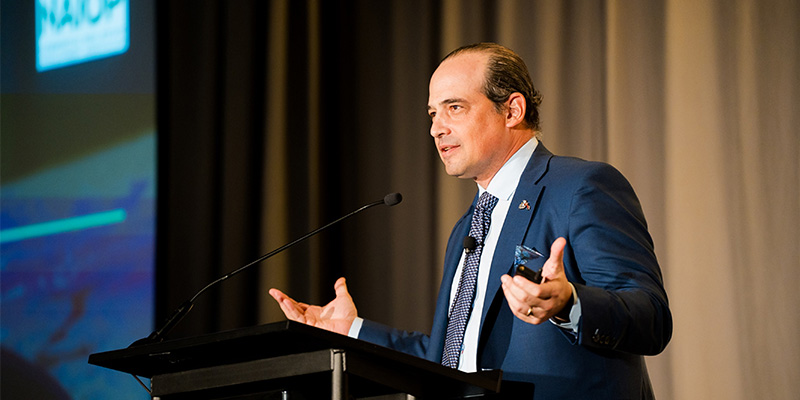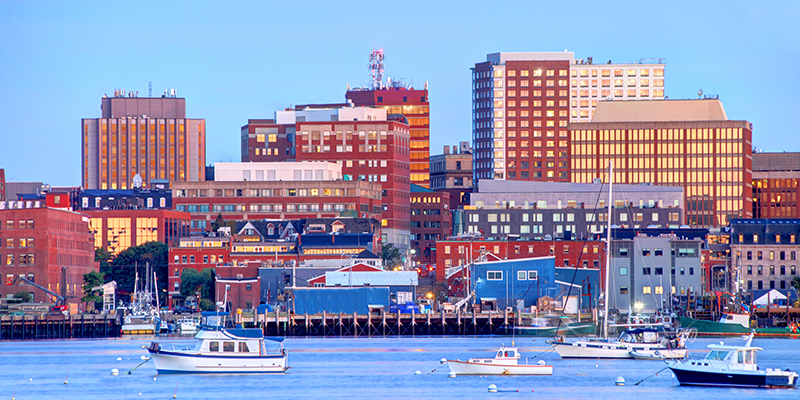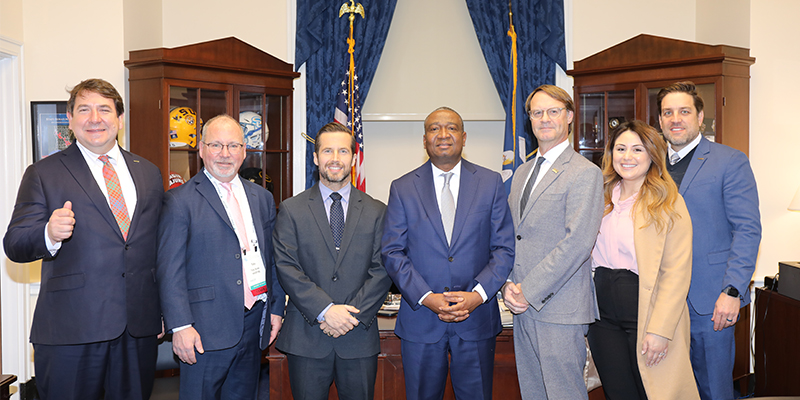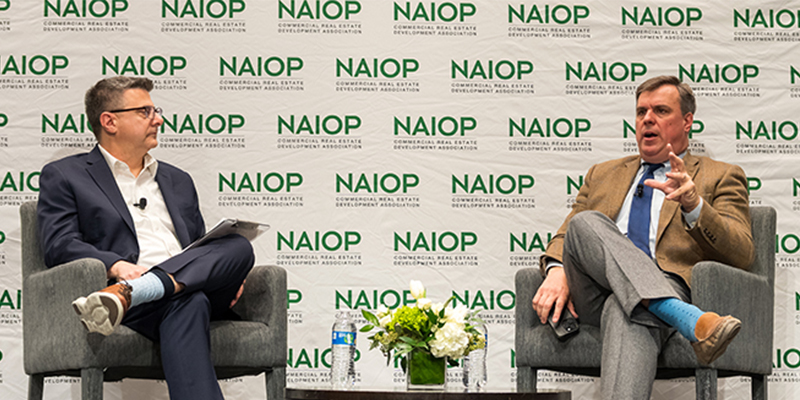CBRE’s Spencer Levy took to the stage at NAIOP’s National Forums Symposium this week in Minneapolis to share his candid outlook on today’s economy, emerging markets and opportunities, and the vulnerability of real estate as it continues to evolve and recover from the COVID-19 pandemic.
Here are top takeaways from Levy’s remarks:
- It’s hard to get it right. Levy started with a confession that many of his forecasts over the last three years have turned out to be incorrect. He attributed the inconsistencies to his use of modern economic tools instead of relying upon more traditional tools that were in place long before algorithms were tilting the view.
- When you get it all wrong, go back to basics. Spencer cited Belinda Román, an economics professor in San Antonio with an impressive track record of growth forecasts at times when much of Wall Street was predicting a recession. Román said she’d look at all the data points and knowledge that should have negatively shaped her outlook and it all seemed wrong, and so she pivoted to talking to everyday citizens – cab drivers, office workers, restaurant employees – and applied common sense.
- We are in the labor and demographics business. Real estate is simply a derivative. Top talent markets of San Francisco, Seattle, New York City and Washington, D.C., are resilient and will rebound no matter what happens in the economy. But don’t rule out tertiary markets that are on the rise, including Denver and Salt Lake City. Also not be ignored is Canada – which has five times the amount of skilled labor than the U.S. – and Mexico, where the average laborer makes just 10% of contemporaries in the U.S., but where tremendous amounts of foreign capital is going. China invested $25 billion in Mexico in the last year.
- Tech markets are surging in specific pockets of secondary and tertiary cities. The biggest rent growth for neighborhoods with growing tech influence are 1) Downtown West (Toronto); 2) River North (Chicago); 3) Northwest (Austin, Texas); 4) Tempe (Phoenix); and 5) Sorrento Mesa (San Diego).
- GDP growth is going to be muted in the near term. Stimulus money has been spent, and inflation is changing the pace of growth that had been holding steady at around 3% annually.
- Artificial intelligence might not make us more efficient. Levy said he’s not a tech skeptic, but recommended the audience read The Rise and Fall of American Growth: The U.S. Standard of Living since the Civil War, written by Robert Gordon. The average American’s productivity hasn’t grown significantly since 1974, despite the advancement of amazing tech tools including the computer and iPhone. So, will AI somehow cause productivity to leap? It’s doubtful.
- Water matters, and we are running out of it. Data centers use 20,000 households’ worth of water per day, as well as extraordinary amounts of power. Should data centers be considered real estate, or are they tiny power grids within four tall walls? And speaking of data centers, could they be overvalued now that they’re experiencing a surge in investment?
- When it comes to investments, local politics matter the most. It’s not just supply and demand any longer, and how local governments are changing the game. Levy cited Florida’s “Live Local Act” that makes significant alterations to zoning requirements, increases affordable housing options, and changes regulations around the development industry.
- The risks are still great. Banks are in worse shape than we thought, and balance sheet problems remain; climate change is impacting supply chains, construction and insurance costs; and future multifamily recapitalization could be significant.
- Follow the manufacturing. Based on estimates, there are 32 current projects in the U.S. that are valued at over $1 billion. Compare that to 2009, when there was just one. Much of this growth is in small markets where manufacturing facilities are being built. Levy cited the Intel chip plant in New Albany, Ohio, that has created 3,000 manufacturing jobs and 7,000 construction jobs. What follows job growth? Investment and the development of housing, amenities, retail and all the buildings necessary to support this sort of influx. Levy says investment in manufacturing is thin for traditional real estate investors, and the opportunity is there.
- Real estate is not a short-term business. Office isn’t going anywhere – it is just continuing to evolve as tenants do. During downturns, retail and hotels that have historically suffered instead soared thanks to the post-pandemic urge to travel and spend. But now that money has been spent, and the party is over.
- The collapse of Francis Scott Key Bridge in Baltimore, Levy’s home market, won’t have a significant impact on industrial markets. The ability for ships to come into the port should be resolved in about a month, and trucking networks have adapted to keep goods moving. Levy emphasized that the situation is tragic, especially in a “big-small town” like Baltimore where so many people have a personal connection to the accident.
Levy closed by saying he remains bullish on the economy, expecting Federal Reserve Chair Jerome Powell to lower interest rates at least twice before the November election and noting that consumer sentiment will remain as a big influence on the economy moving forward.








